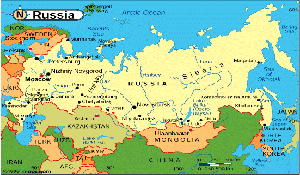Understand and Respond to Contemporary Russia


Finland, After ‘hybrid warfare’, what next? – Understanding and responding to contemporary Russia.
Author | Editor: Bettina Renz ja Hanna Smith (Office of the Prime Minister of Finland).
More than two years after Russia’s annexation of Crimea, the West continues coming to terms with the implications of this event. As discussed by the project’s the first report, the concept of ‘hybrid warfare’ quickly established itself, because it seemed to be particularly useful to explain recent changes in Russian defence and foreign policy. The report highlighted that the concept was indeed valuable in drawing the attention of policymakers to some new security challenges. At the same time, the report cautioned that beyond this initial usefulness, the concept of ‘hybrid warfare’ as an explanation for almost every Russian policy move is likely to do more harm than good to our understanding of developments in Russia, as well as to the process of identifying and implementing realistic responses.
The central purpose of the second report is to emphasise that there is no simple answer or concept, such as ‘hybrid warfare’, that can evaluate developments in Russia in all their complexity. In order to gain a nuanced understanding of changes in Russian foreign, security and defence policies differentiated questions should be asked about strengths and limitations of Russian military capabilities, developments in Russian thinking on the use of armed force, Russian foreign policy goals and intentions and possible responses to Russia, all of which need to be tailored to the concerns and requirements of specific actors and states. Such an approach enables a detailed understanding of what is really new as opposed to what merely appears to be new in accordance with the ‘hybrid warfare’ idea. Towards this end, members of the project’s panel of experts provided detailed studies on the difficulties relating to the manipulation of morel forces in war (‘information warfare’); Russia’s international image projection; changes in the use of Russian military force and conventional military power as a foreign policy tool; improvements in Russian capabilities to coordinate complex, 21st century military operations; long-term implications of inefficiencies in Russian military spending; the relevance of coercion and deterrence for understanding recent Russian military action; and international lessons in civil-military relations and their particular relevance for Finland.
The report concludes with the following recommendations:
- Russian politics is more complex than macro-level concepts, such as ‘hybrid warfare’ suggest. Responses to recent changes in Russian foreign and defence policy need to bear this in mind.
- Strong Russian area studies should be supported. In-depth understanding of Russia requires wide-ranging expertise of the country’s politics, history, culture, society and economy.
- Context is key for understanding contemporary Russia. The recent focus on ‘hybrid warfare’ has overstated the newness and uniqueness of recent Russian actions, both militarily and in terms of foreign policy. This has come at the expense of historical and comparative context, which has tended to overstate the ‘uniqueness’ of the Russian case.
- Unnecessarily overstating Russian strengths and Western weaknesses can have unintended consequences. Western countries, Finland included, should stress their own strengths first and foremost.
- While making a strategy to deal with long term challenges coming from Russia, an important factor is openness and inclusion – a key strength of liberal democracies, such as Finland.
- Bilateral relations with Russia are always also a part of larger context – it is important not only to understand Russia, but also the perceptions of other actors, states and regions on contemporary security and Russia.
